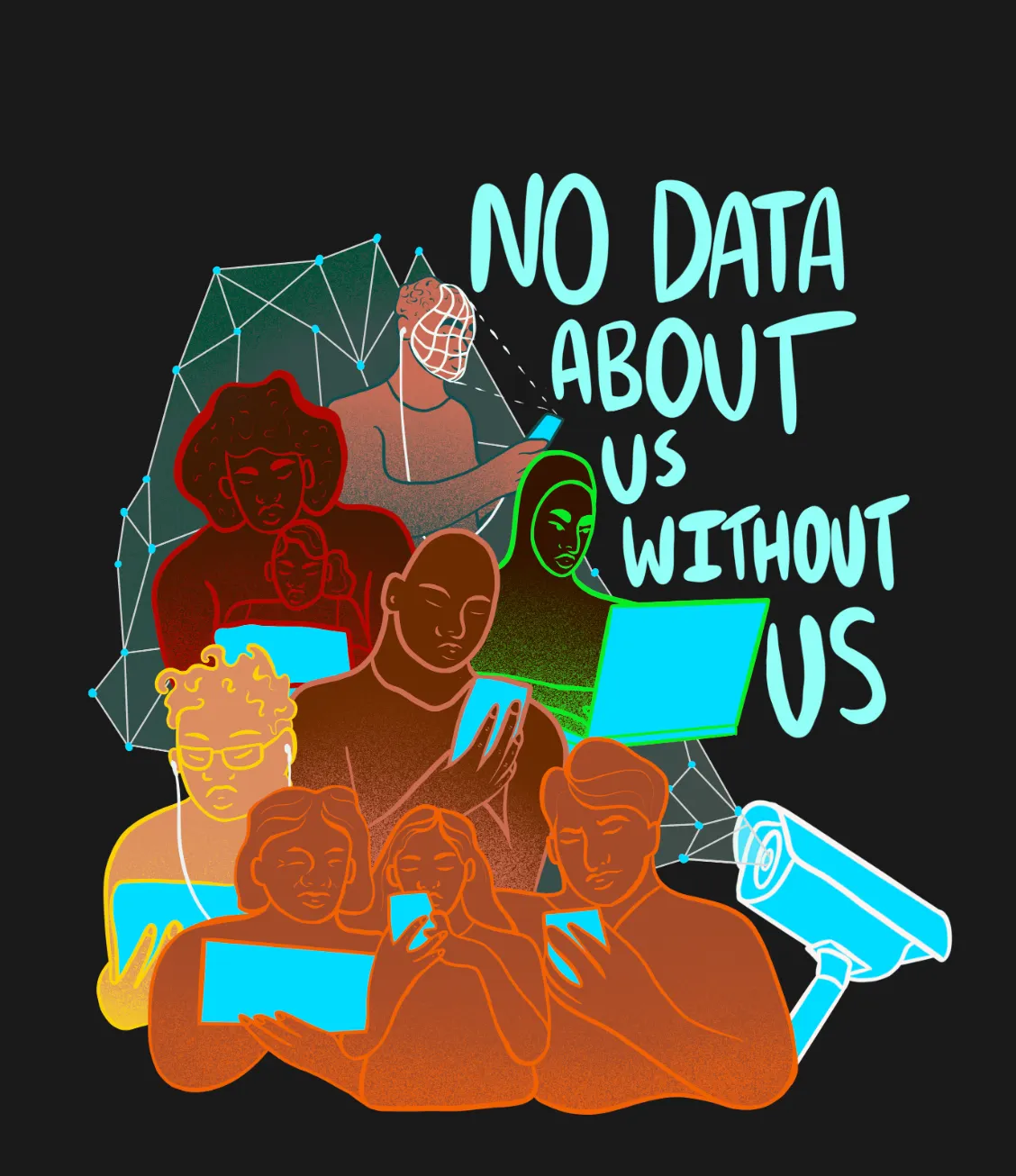Digitalizando el terror racial en Salvador/Brasil: El uso del reconocimiento facial por la policía y la actualización de los patrones históricos de violencia estatal contra las comunidades negras
Pedro Diogo Carvalho MonteiroEsta entrada del blog de Pedro Monteiro explora el uso del reconocimiento facial por la policía en Brasil.
.png)
El reconocimiento facial como problema en Salvador, Brasil...
En 2023, hubo noticias de un hombre negro erróneamente detenido por la policía en junio durante 26 días debido a un falso positivo por el reconocimiento facial utilizado por la Secretaría de Seguridad Pública de Bahía. No era la primera vez que ocurría algo así. En 2020, un joven fue abordado erróneamente por agentes de policía y puesto a punta de pistola delante de su madre.
El estado de Bahía y su capital Salvador comenzaron a utilizar el reconocimiento facial para la vigilancia policial en diciembre de 2018. Conectando esta tecnología biométrica con el sistema de CCTV, este sistema detuvo entre 2018 y 2023 a más de 1.000 personas, según los registros oficiales. Su implementación se caracterizó por la falta de transparencia y el incumplimiento de las directrices legales y constitucionales brasileñas, y se invirtieron más de 680 millones de reales, casi 140 millones de dólares estadounidenses.
Inicialmente, el sistema se utilizaba en grandes eventos como Nochevieja, Carnaval y fiestas locales en la ciudad de Salvador. Después, empezó a utilizarse en puntos de gran circulación de personas como el sistema de metro, el estadio de fútbol, lugares de interés turístico y otros espacios públicos. Luego, en 2021, inició un proceso de expansión del sistema más allá de las 100 cámaras iniciales en Salvador e implementó cámaras en más de 70 ciudades del interior de Bahía.
Brasil y los patrones históricos de violencia racial y vigilancia contra la población negra
****Hablar de vigilancia en Brasil nos lleva a hablar de esclavitud y de un sistema penal profundamente arraigado en el racismo contra los negros. La profesora Ana Luiza Flauzina argumenta que la arquitectura del castigo en Brasil tiene sus raíces en la esclavitud , el control de clase de las personas esclavizadas y en la creación de un sistema legal contra esos grupos. Estos patrones continúan en el sistema penal, incluso con la abolición de la esclavitud, siendo las comunidades negras perseguidas por la policía.
La socióloga Vilma Reis se suma a este argumento señalando que la policía del estado de Bahía -y especialmente en Salvador- se fundó para promover la contrainsurrección contra los quilombos (formas sociales de resistencia de los negros durante la esclavitud) y otros tipos de revueltas contra la esclavitud. Esta memoria institucional continúa después de la abolición y es reforzada por la antropología criminal basada en la biología, que intenta establecer la idea de la tendencia de los negros (e indígenas) al crimen.
El actual sistema penal brasileño se caracteriza por el encarcelamiento masivo y la violencia policial contra los negros y nuestras comunidades. Con una política criminal definida por la protección de la capital y el marco de la "Guerra contra las Drogas" - una lógica que como Michelle Alexander ya estableció está conectada con la focalización de las comunidades negras - tenemos un encarcelamiento compuesto principalmente por personas no blancas y de bajos ingresos.
En un estudio reciente de la Rede Observatórios de Segurança - Red de Observatorios de Seguridad -, se constató que el 94,76% de las muertes resultantes de las intervenciones del Estado fueron de personas negras. Bahía tiene una proporción de población negra del 80,80%, lo que expresa lo racializada que está esta violencia de Estado.
El problema del reconocimiento facial a través de la lente de la raza
****El reconocimiento facial y su uso para la vigilancia han sido ampliamente criticados por su potencial para promover daños y violar varios derechos fundamentales y libertades públicas. Además de las preocupaciones con la protección de datos, la privacidad y el derecho de reunión, el reconocimiento facial es también una tecnología con una alta tendencia a promover y aumentar la discriminación racial y de género.
Joy Buolowaimi, Ruha Benjamin, Simone Browne, Timmit Grebhru son algunos de los estudiosos que han señalado el sesgo racial y de género en los sistemas de visión por ordenador, especialmente en el reconocimiento facial. Se ha demostrado que estos sistemas confunden de forma desproporcionada los rostros no blancos, especialmente los de mujeres negras.
Pero lo que más me preocupa no son sólo las injusticias algorítmicas que conllevan los problemas técnicos de esos sistemas, sino cómo esta nueva tecnología se añade a estructuras sociales ya de por sí basadas en la exclusión y la violencia, especialmente la policial.
Los contextos posteriores a la esclavitud en los que la policía se convirtió en una expresión del racismo como estructura de poder -como Brasil y Estados Unidos- implican archivos policiales y datos criminales definidos por estas prácticas de persecución de comunidades racializadas y empobrecidas. Eso significa que cualquier tecnología que dependa de datos recopilados previamente para funcionar acabará reproduciendo los patrones de esta recopilación histórica. El pasado se convierte en el futuro, pero actualizado.
Actualizar el terror racial mediante la tecnología digital
En este sentido, veo la implementación del reconocimiento facial en Bahia y en la ciudad de Salvador como una actualización de los patrones históricos de persecución y violencia contra los negros. Ayuda al Estado a abrir su capacidad de monitorear y promover la violencia en los territorios, controlando ampliamente los flujos de personas y produciendo diferencias raciales a través de la tecnología digital.
Un informe realizado por la Rede Observatórios de Segurança( Red de Observatorios de Seguridad) en 2019 mostró que el 90% de las detenciones realizadas en Brasil fueron de personas negras. La mitad de estas detenciones se produjeron en Bahía
En mi propia investigación, identifiqué 408 detenciones entre diciembre de 2018 y agosto de 2022 en Bahía, utilizando informes realizados por la Secretaría de Seguridad Pública. En 145 de ellos, no hay información sobre la persona detenida y la acusación, lo que demuestra la falta de transparencia en el manejo de los asuntos de seguridad pública.
Echando un vistazo a la acusación que justificó la detención en los que hay más información que se permite utilizar con los delitos penales terminan siendo más blanco de esta tecnología.
Se puede ver que "Robo" y "Delitos de drogas" siendo los campeones de las detenciones en el uso de reconocimiento facial en Bahia, expresando los patrones de control de capital y "Guerra contra las Drogas". Esto sigue los patrones de los datos de encarcelamiento que tenemos en Brasil que muestra "Delitos contra el patrimonio" y "Delitos contra la Ley de Drogas '' como los principales motivos de las detenciones.
Ambas opciones de criminalización tienden a afectar profundamente a las comunidades negras y empobrecidas de Brasil y materializan cómo el reconocimiento facial tiende a repetir patrones ya establecidos de represión estatal. Además, siguiendo lo que Jackie Wang define como "policía algorítmica", esta tecnología ayuda a la policía a crear un discurso de modernidad y neutralidad a través de la verdad científica. En este sentido, el reconocimiento facial no sólo actualiza el terror racial y la represión en su trabajo material, sino también en el discurso policial.
También está la cuestión de la falta de transparencia entre la policía y el público sobre el uso del reconocimiento facial. Preguntada por los índices de falsos positivos, la Secretaría de Seguridad Pública respondió diciendo que no había ninguno. Pero siguen llegando noticias de personas detenidas erróneamente a causa de los errores de la herramienta biométrica - y también, ¿cuántas más son de estas detenciones que no se hicieron públicas?
Salvador, también llamada la Roma Negra por su población mayoritariamente negra y su importancia para las religiones afrobrasileñas, fue el laboratorio inicial para el uso de esta tecnología y donde esta actualización fue plenamente probada y definida por las autoridades públicas como un caso de éxito. En una ciudad que expresa la cultura, el poder político y la vida de los negros, la tecnología viene a expresar una actualización de la dura verdad de la violencia racial definida por el Estado brasileño.



